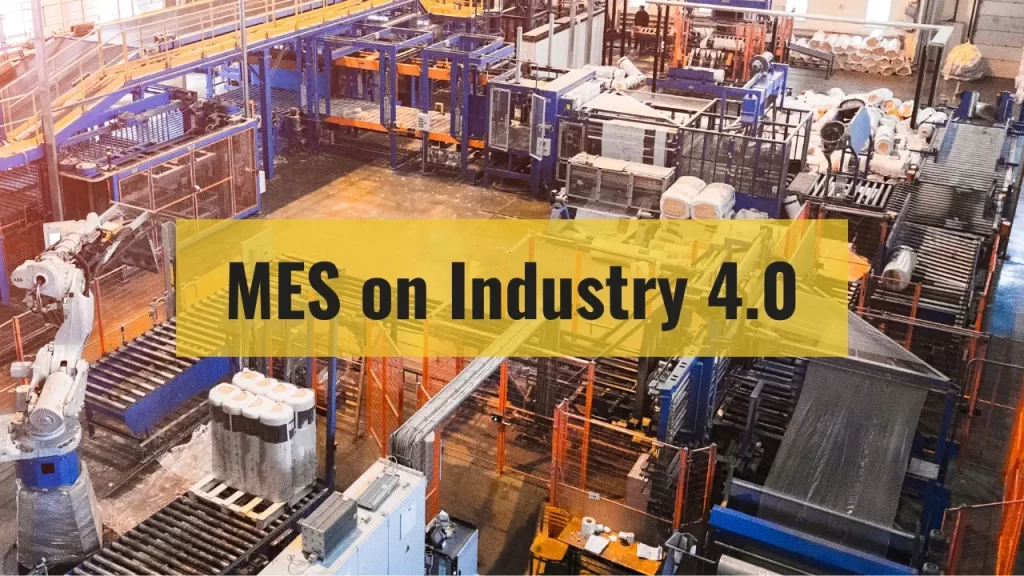In the rapidly evolving landscape of modern manufacturing, the integration of technology has become a defining factor in shaping the future. At the forefront of this revolution is the pivotal role played by Manufacturing Execution Systems (MES) in the context of Industry 4.0. This article delves into the profound impact of MES on the fourth industrial revolution, exploring the intricate synergy between the two and the transformative outcomes they deliver.
Understanding Manufacturing Execution System (MES)
Manufacturing Execution Systems are comprehensive software solutions designed to streamline and optimize the various facets of manufacturing operations. As we transition into the era of Industry 4.0, the role of MES becomes increasingly critical. It acts as the digital nervous system, connecting different elements of the production process and facilitating real-time communication and decision-making.
Key Components of MES
1. Real-time Monitoring
MES provides a real-time overview of the production process, allowing for instantaneous tracking of operations. This not only enhances visibility but also enables proactive decision-making.
2. Data Integration
Integration with other systems, such as Enterprise Resource Planning (ERP) and Supply Chain Management (SCM), ensures seamless flow of information across the manufacturing ecosystem.
3. Quality Management
MES plays a pivotal role in maintaining and improving product quality by monitoring and controlling various parameters throughout the production cycle.
4. Resource Optimization
Efficient utilization of resources, including materials, equipment, and personnel, is achieved through MES, contributing to cost reduction and increased productivity.
MES in the Context of Industry 4.0
Industry 4.0 represents the convergence of digital technologies, data, and physical processes to create smart, interconnected manufacturing environments. MES emerges as a linchpin in this scenario, bridging the gap between the physical and digital realms of manufacturing.
MES Industry 4.0 Integration
The integration of MES in the Industry 4.0 framework is symbiotic. MES empowers smart manufacturing by providing the necessary tools to collect, analyze, and act upon data in real time. This capability aligns seamlessly with the overarching objectives of Industry 4.0, where connectivity and data-driven decision-making are paramount.
Enhanced Connectivity
MES facilitates connectivity across the entire manufacturing value chain. From suppliers to production and distribution, the system ensures a cohesive flow of information, enabling stakeholders to make informed decisions at every stage.
Real-time Decision Support
In the dynamic landscape of Industry 4.0, agility is key. MES not only provides real-time insights but also supports decision-making by offering actionable data. This adaptability is crucial for responding swiftly to market changes and optimizing production strategies.
The Role of MES Software in Industry 4.0
MES software emerges as the backbone of Industry 4.0, serving as the digital infrastructure that enables smart manufacturing. The software’s ability to collect and process data from various sources is instrumental in creating an intelligent, responsive manufacturing ecosystem.
1. Predictive Analytics
MES software harnesses the power of predictive analytics, leveraging historical data to anticipate potential issues and prescribe preventive measures. This proactive approach is invaluable in minimizing downtime and optimizing overall equipment effectiveness (OEE).
2. Customization and Scalability
In the ever-evolving landscape of Industry 4.0, flexibility is paramount. MES software provides a customizable and scalable solution that adapts to the unique needs of different manufacturing environments. Whether dealing with small-scale production or large-scale operations, MES software ensures a tailored fit.
Challenges and Solutions in Implementing MES in Industry 4.0
While the integration of MES in Industry 4.0 offers significant advantages, it also poses certain challenges. These challenges range from cybersecurity concerns to the need for skilled personnel. However, advancements in technology are paving the way for innovative solutions.
Cybersecurity Measures
As manufacturing systems become increasingly connected, the vulnerability to cyber threats rises. To address this, MES solutions incorporate robust cybersecurity measures, including encryption, access controls, and regular security updates, safeguarding the integrity of the manufacturing process.
Skill Development Initiatives
The successful implementation of MES in Industry 4.0 requires a skilled workforce. Training programs and skill development initiatives are crucial in ensuring that personnel possess the necessary expertise to leverage the full potential of MES solutions.
The Future of Manufacturing with MES Integration in Industry 4.0
As Industry 4.0 continues to unfold, the significance of Manufacturing Execution Systems is poised to grow exponentially. The marriage of MES and Industry 4.0 is a paradigm shift that redefines the manufacturing landscape, offering unparalleled efficiency, agility, and innovation.
Driving Innovation
MES integration in Industry 4.0 fosters a culture of innovation. The real-time data insights provided by MES empower manufacturers to identify areas for improvement, experiment with new technologies, and continuously enhance their processes.
Sustainable Practices
Industry 4.0 emphasizes sustainability, and MES plays a pivotal role in achieving this goal. By optimizing resource utilization and minimizing waste, MES contributes to the development of environmentally conscious manufacturing practices.
Conclusion
In conclusion, the impact of the Manufacturing Execution System on Industry 4.0 is transformative. As manufacturing environments become increasingly complex and interconnected, MES emerges as a catalyst for efficiency, innovation, and sustainability. The seamless integration of MES in Industry 4.0 creates a roadmap for the future of manufacturing, where smart, data-driven processes redefine the industry’s possibilities.
